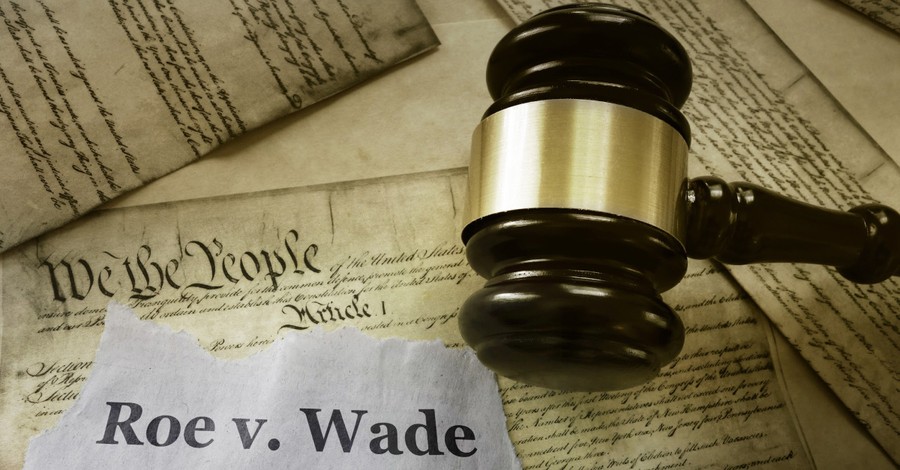
A year ago, after 49 years of Roe v. Wade straitjacketing legislatures and courts into a draconian pro-abortion regime, the U.S. Supreme Court overturned the infamous 1973 ruling. In Dobbs v. Jackson Women’s Health the court returned power to the states to determine abortion policy. Pro-life groups have rightly celebrated this fruit of decades of labor, encouraged that their efforts were not in vain. They can also be confident that their work to serve mothers and children will no longer be hamstrung by the miscarriage of justice embodied by Roe.
At the same time, it was not clear a year ago what the end of Roe would mean state by state. How divided is our country over this issue? What would the future of defending pre-born lives entail? Would the Dobbs decision take us closer to the ultimate goal: that abortion would not be merely illegal in some places but unthinkable everywhere? Or would the demon of Roe be replaced by seven more, even worse?
Recently, an article in National Review summarized what can be discerned from the annual Gallup Values and Beliefs poll. The number of Americans who identify as pro-life has grown in the past year by four points, to now 41% of the population. Similar numbers of those polled believe that abortion is a moral wrong. A majority of Americans think that abortion should be illegal in the second trimester, and a strong majority believe it should be illegal in the third trimester.
Not only has public opinion shifted in the wake of the Dobbs decision, but lives have been saved: over 24,000 of them, in fact, according to the statistics organization FiveThirtyEight. Though an additional 69,000 abortions were performed in pro-abortion states compared to the same time period a year before, that was more than offset by the over 93,000 fewer abortions performed in pro-life regions.
The dramatic difference between pro-abortion and pro-life states is an indication of the ongoing radicalization of the pro-abortion movement. States such as New York and California long ago replaced the pretense of “safe, legal, and rare” for macabre celebrations and blatant attempts to silence all pro-life dissent. More recently, and in reaction to Dobbs, my own state of Colorado has passed legislation that will make it among the most radical pro-abortion places in the Western world. There has also been an uptick in vandalism and flagrant violence hurled at pro-life agencies and activists.
The most difficult obstacle to the prospect of building a pro-life culture, even in otherwise pro-life states, is the increasing popularity and availability of mail-order abortion pills. These dangerous chemicals, which kill the children and risk the lives and health of their mothers, can be secured at home, often without a doctor’s visit. According to most estimates, chemical abortions, which are notoriously difficult to track, now account for over 50% of all abortions.
Another development over the last year has been the failure of pro-life legislation in otherwise ostensibly conservative places, states such as Montana, Kansas, and Kentucky. Even in states where laws were passed, as in Indiana, pro-life lawmakers had a tougher-than-expected struggle. Thankfully, there were courageous and committed lawmakers who pushed through. In states with so-called “trigger laws,” laws already on the books in the case of Roe’s demise, abortion clinics have been closed and restrictions on abortion have been added, leaving whole regions increasingly abortion-free.
The Dobbs decision has also had unexpected implications for other at-risk children. A few years ago, I had the privilege of interviewing Hannah Strege and her family. Hannah was the very first so-called “snowflake baby,” meaning she’d spent the first two years of life as a frozen embryo conceived via in-vitro fertilization, before being adopted and given a chance at life. Hanna and her parents presented an amicus brief for the Dobbs case, arguing that her life shows that viability begins at fertilization due to modern technology. Now, post-Dobbs, the Streges continue to advocate for the protection of embryos as distinct, valuable human beings as more and more states take up the question of when life begins.
The rest of us must continue to advocate for the protection of pre-born life, knowing it will take years of political campaigning, legal maneuvering, crisis pregnancy intervention, and care for at-risk moms and babies. For a free resource on how you can work toward creating a culture of life, go to breakpoint.org/abortion.
This Breakpoint was co-authored by Dr. Timothy D. Padgett. To help us share Breakpoint with others, leave a review on your favorite podcast app. For more resources to live like a Christian in this cultural moment, go to breakpoint.org.
Publication date: June 23, 2023
Photo courtesy: ©Getty Images/Zimmytws
The views expressed in this commentary do not necessarily reflect those of CrosswalkHeadlines.
BreakPoint is a program of the Colson Center for Christian Worldview. BreakPoint commentaries offer incisive content people can't find anywhere else; content that cuts through the fog of relativism and the news cycle with truth and compassion. Founded by Chuck Colson (1931 – 2012) in 1991 as a daily radio broadcast, BreakPoint provides a Christian perspective on today's news and trends. Today, you can get it in written and a variety of audio formats: on the web, the radio, or your favorite podcast app on the go.
John Stonestreet is President of the Colson Center for Christian Worldview, and radio host of BreakPoint, a daily national radio program providing thought-provoking commentaries on current events and life issues from a biblical worldview. John holds degrees from Trinity Evangelical Divinity School (IL) and Bryan College (TN), and is the co-author of Making Sense of Your World: A Biblical Worldview.











